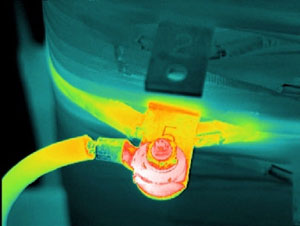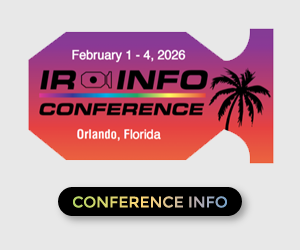Infrared Inspections of Dry-type Transformers
Sponsored by:

Infrared Inspections of Dry-type Transformers
Tip written by: Infraspection Institute
A thorough infrared inspection of an electrical transformer can point out symptoms of loose connections as well as other possible problems. When performing an infrared inspection of a dry-type transformer, be certain to include not only the primary and secondary connections but also the following items as well:
1) Inspect neutral and grounding connections for hot spots.
2) Compare phase coils to each other. Transformers with balanced loads will exhibit similar temperatures between windings.
3) Compare each phase coil to itself. Properly operating coils should exhibit no pronounced hot or cold spots.
4) Inspect voltage tap jumper connections. Both connections should be the same temperature. In most cases, the jumper will be colder than the windings.

tap connection
5) Compare transformer operating temperature to nameplate rating. For long term service, transformers should not operate above their maximum rated temperature.
In conjunction with the infrared inspection, cooling fans should be checked for proper settings and operation.
Finally, transformers require proper air circulation for cooling. To help ensure maximum airflow, transformer ventilation openings should be unobstructed and free from dirt.
Infrared inspection of power distribution systems is one of the many topics covered in the Level I Infraspection Institute Certified Infrared Thermographer® training course. For information on thermographer training including course locations and dates, visit us online at www.infraspection.com or call us at 609-239-4788.
Advertisement

